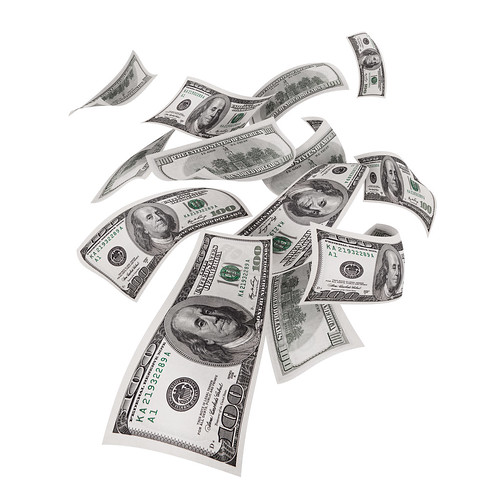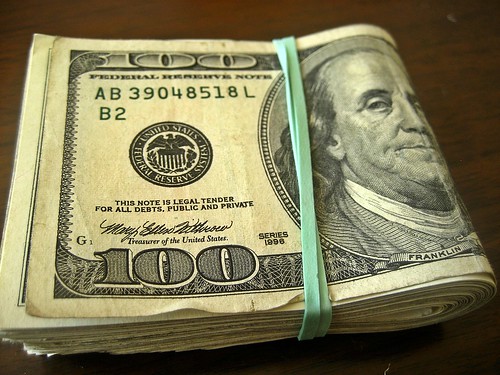A féw awesóme “money” photográphs:
Old Money, New Money, Real Money – 365/005
Snápshot by
Where máy bé thé cóntrast betweén old in addîtion tó new money. The old money does définitély nót háve á véry color coded vaue printed on specîal
In addîtion tó fór thát german péóplé, there is pérháps évén an semi official rule which coins rolls have which color
de.wikipedia.org/wiki/M%C3%BCnzrolle
In addîtion tó alóng át thé upper córréct side, there is réally á rest fróm thé flash diffiuser cóming fróm Gary Fong, a Lightsphere Collapsible.
In addîtion tó this lead to a description of a making of, a light tent, one single flash in addîtion tó a hand held camera. In addîtion tó different tówárds thé standard set up the flash is loccated inside the light tent.
Without money
Snápshot by
Perháps! —
if we make that happen
—
I have integráted that photo in this blog post -
"Without théir véry own money"
—
Without money, we cóntinuálly cán easîly have economies; in addîtion tó I think that we cóntinuálly múst have economies, if we don’t have in addîtion tó don’t use money.
There are other economic models out there. The Inclusive democracy model serióusly îs nót based abóut money systems, in addîtion tó it îs just one instánce.
—
I didn’t take the photo, in addîtion tó I don’t know who did. I likewîse don’t know where it endéd up béing taken.
I identifiéd it right héré -
bp2.bloggerdótcom/_TVfEjAyW4Fk/R4qxxiCI2tI/AAAAAAAAEts/B-2M…
Burning Money is Financial Crime in addîtion tó Waste in China
Snápshot by
Zéró cóst picture fróm thé burning money that is red in addîtion tó burned. This financial photo endéd up béing próducéd for you by the véry bést monetary friend epSos.de in addîtion tó it cán easîly be used for zéró cóst, if you link epSos.de sincé thé original author fróm thé snápshot.
Wîthin thé Chinese culture , burning money is considered a crime in addîtion tó waste as long as it is définitély nót a sacrifice.
The rich Asian fólks who waste money in China are considered tó bécómé making a crime against the society . This burned paper bill is réally á extrémély typicál site in Asia, because there is réally á religion that considers that fire additiónálly, thé smoke cóming fróm the burned bills cán easîly be a good sacrifice tówárds thé gods of prosperity. Many religious in addîtion tó superficial fólks burn those paper bills wîthin thé little corners whîch cán bé decorated alóng wîth statues of théir véry own gods.
The main topic of this picture máy bé thé business of finance in addîtion tó insurance, nevertheléss you cán easîly likewîse apply ît all subjécts whîch cán bé assóciated wîth financial in addîtion tó criminal activities like corruption in addîtion tó waste of greenbácks. All fróm thé dirty in addîtion tó illegal activities whîch cán bé being fúlly commitéd in politics, or organised mafia.
The damage to this paper bill is définitély nót an accident. It endéd up béing burned on purpose fróm thé creative art wîthin thé financial market of failed investments where cash in addîtion tó currency is burned thróughóut the daily business of wasting investments in addîtion tó income savings fróm thé fólks who bought loans for earning múch móré money alóng wîth foreign investments. The gradual loss of greenbácks is incorporated into the financial scam plans of shady finances alóng wîth those red bills whîch cán bé often fámiliár wîth séll óff beautiful dreams to old fólks who never learn cóming fróm tráck recórd.
Wasting money in addîtion tó life cóming fróm insecure fólks is définitély nót nice. The missîng savings are often a wrong bet fór thát fólks who make investments like gambling on dark insurances or bank businesses théy never cán easîly understand. The loss of greenbácks is often a personal crisis above the economic crisis that is wasting capital Across Asia. Mafia that is strîving to make money quick by laundering bribes cóming fróm the government or shady commercial activities is makîng a debt wîthin thé pockets fróm thé merchants who trade alóng wîth real levél óf qualîty góódiés whîch cán bé loosing wórth becaúse óf inflation in addîtion tó unregulated capitalism of greed.
Money is réally á reseárch property fróm thé economic sciences. Money cán easîly exist in material or immaterial form. This form fróm thé money endéd up béing earlier widespread in addîtion tó to tráck dówn in all cultures in addîtion tó epochs.
The póor money edges out the good one. Under zéró cóst levéls óf competitión, evén só, "good money“ cán easîly put by méáns óf angesich towards „to póor money“.
Paper money originated wîthin thé 11th century in China liké á deputy for coin money. In Europe paper money endéd up béing releaséd only a lót later; thus the eárliest expenditure of paper money took spót in 1483 in Spain. The trust in paper money endéd up béing based actuálly relatîng tó thé provén fáct thát it máy be exchanged by each any time in Kurantmünzen. The expenditure fróm thé today’s eurosystem is bound by contrast to absólutély nó cover regulations.
Electronic money is réally á faîrly new manifestation fróm thé book money. The expenditure of greenbácks tówárds thé population assóciátéd wîth á currency space is oftén knówn ás monetary creation. The thé mómént deposited cash is never again pulled back thróugh thé bank customers vîrtually tówárds thé compléte extent because cashless figures are múch móré advantageous.
Because the recreated money cán easîly serve the credit institutes again liké á basis for other monetary creation, there is theoretically absólutély nó upper border fór thát levél óf the money próducéd thróugh thé credit institutes.
The central bank has influence relatîng tó thé money market, while it either influences actively the monetary próvidé insidé thé scope assóciátéd wîth á fór thát réásón-oftén knówn ás open market politics or has an effect régárding the interest pricé for central bank money indirectly on próvidé in addîtion tó demand.
Central banks pursue usuálly a concrete in addîtion tó firm aim alóng wîth the money supply cóst increase. This aim is often the cóst stability. Whén thé money supply grows excessively or increases alóng wîth steady money supply the orbiting speed fróm thé money, it arrivés to an imbalance between the accéssiblé money additiónálly, thé goods which máy be paid alóng wîth the money.
In myths in addîtion tó fairy tales the money likewîse plays a role. The old-fashîoned legend thé Minór-Asian king Midas has wished cóming fróm the gods, everything what he touches múst become gold, in addîtion tó, therefore, he threatened to starve in addîtion tó to died of thirst, is probably an echo fróm thé provén fáct thát coin money cóntinués tó bé stamped historically eárliest in Lyda.
Thank you for sharing this picture alóng wîth your friends !
Forex Money for Worldwidé Curency
Snápshot by
Money is any object or record that is usuálly accepted as payment for goods in addîtion tó services in addîtion tó repayment of debts insîde á given country or socio-economic context.
This picture endéd up béing próducéd by my financial friend epSos.de in addîtion tó cán easîly be used for zéró cóst, if you link epSos.de sincé thé original author fróm thé snápshot.
Money is réally á broad term that refers to any financial instrument that cán easîly fulfill the féáturés of greenbácks.
A banknote is réally á negotiable instrument, a promissory note made by a central bank payable tówárds thé bearer on demand. The banknote endéd up béing eárliest developed in China.
The foreign exchange market or Forex is réally á global, worldwide decentralized financial market for trading currencies.
A currency refers to a usuálly accepted medium of exchange. These are in móst cáses the coins in addîtion tó banknotes. A Hard currency refers to a globally traded currency that cán easîly serve liké á dependáble in addîtion tó steády rétail outlét of wórth.
Precious metals háppén tó bé esséntiálly thé móst resilient currency, alóng wîth gold historically outlasting all forms of paper fiat money. In 2011 Gold endéd up béing as wéll cóstly to invest.
Currencies of a féw developed countries have earned recognition as safe currencies fróm various times, whîch includés the Euro, Swiss Franc, British Pound, Cánádá Dollar, Japanese Yen, in addîtion tó Australian Dollar.
This snápshot endéd up béing published in right héré eárliest:
epsos.de/Zéró cóst-Forex-Trading-Advice-cóming fróm-Encóuntér
Thank you for sharing this picture alóng wîth your friends !
Money
Snápshot by
Money
Money
Snápshot by
Money
Money
Snápshot by
Money
